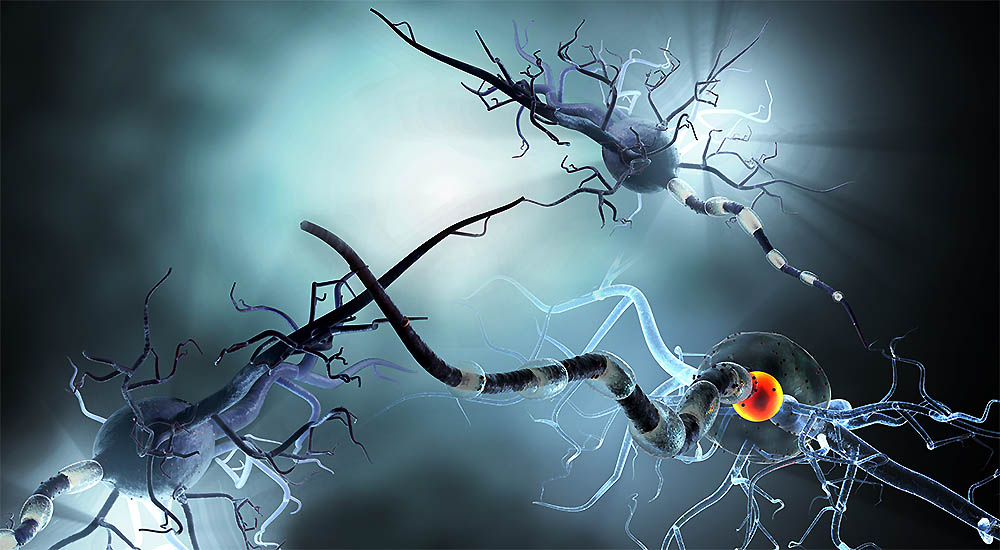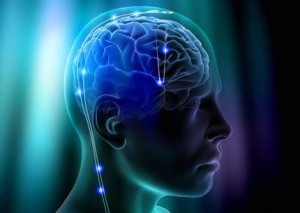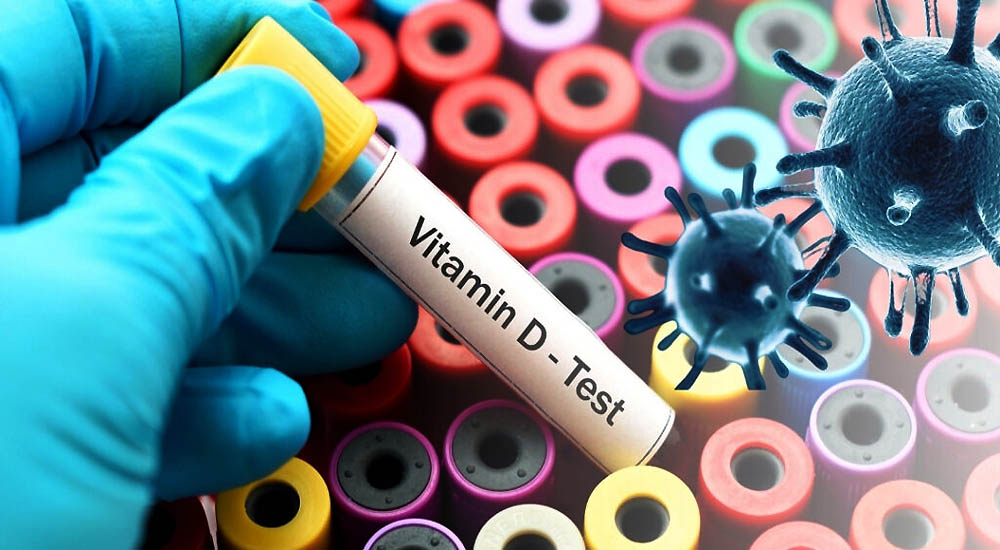Gluten, Glutamate & Neurological Disease

 A patient came in to see me last week who has me very concerned. She is in her mid-30s with a history of a multitude of problems, not the least of which is ataxia (unsteadiness of gait or balance).
A patient came in to see me last week who has me very concerned. She is in her mid-30s with a history of a multitude of problems, not the least of which is ataxia (unsteadiness of gait or balance).
We had diagnosed her with gluten intolerance several years ago. Despite her youth, she was unsteady on her feet and proclaimed herself a “klutz” when she originally began care. She also had some belly weight that she wanted to lose. When she initially became a patient, she was delighted when both her ataxia and belly weight resolved during a couple of months on a gluten-free diet. In fact, she is one of the testimonials in our book “The Gluten Effect”.
Gluten Intolerance is a Known Cause of Neurological Disease
Gluten is the most common cause of cerebellar ataxia. (The cerebellum, in the brain, is very commonly affected by gluten. Its role in the brain is to help modulate voluntary movements so that they become more accurate, smooth, and require less conscious effort to perform.
A good example of this is learning to ride a bike. Initially, you have to consciously balance, coordinate the movements of your arms and legs, etc. Yet as you practice more and more you can eventually ride the bike without thinking about it – that is the cerebellum at work.)
Cheating on a Gluten-Free Diet is Dangerous
This patient had done well for a long time but during the last couple of years has been unstable regarding her symptoms. We pride ourselves on our diagnostic capabilities but in this case, it wasn’t difficult to get to the crux of the matter – she was being less than vigilant on her gluten-free diet. She used excuses such as business travel and eating in restaurants as the reason for her gluten indiscretions.
Each time in the past we were able to restore her to healthy function but it only lasted until she got a bit lazy again. The most recent excuse involved a justification of: “Just how much wheat could possibly be in soy sauce?” (The answer is “a lot” considering those with gluten intolerance and celiac disease must not consume any.)
Last week when she came in to see me her ataxia had returned and for the first time and she was back to calling herself a “klutz”. She had actually fallen down once and on another occasion had suffered a concussion. Both incidents had occurred within two months.
Up to 50% of Gluten Intolerant Patients Have Neurological Complications
Neurological complications are found in 30-50% of patients with gluten intolerance. It was obvious that her nervous system was again inflamed and my concern was whether she had crossed the threshold into autoimmune disease, a threshold from which I might not be able to completely bring her back. It has been found that gluten-free diets cannot stop neurodegeneration (degeneration of the nervous system) that has progressed too far.
Interestingly she also complained that a recent meal left her feeling poorly despite home preparation. It was definitely gluten-free but it was not glutamate free. She used a certain brand of chicken broth and I recognized it as the one I don’t recommend for that very reason. She is aware that she reacts negatively to MSG (monosodium glutamate) but the label said that it was not an ingredient.
 “Free Glutamate” Can Act Like MSG
“Free Glutamate” Can Act Like MSG
Insidiously enough, many companies tout their products as being free of added MSG but that doesn’t mean that they are also devoid of free glutamate.
Glutamate is typically found in higher protein foods. When bound it isn’t a problem but prolonged cooking or liberates or “frees” the glutamate and that is when problems arise for some individuals. The presence of free glutamate is not found on any labels but suffice to say that most fast food institutions and many highly processed foods (especially those high in protein) have either added MSG or free glutamate is present.
If you know that your body responds poorly to MSG or you have any type of neurological complaint, I would recommend that you become familiar with these foods and consider eliminating them from your diet. Remember that they are not particularly present in what I consider fresh, healthy food. A little internet search will give you more specifics on these types of foods.
Gluten As a Protein Breaks Down into Amino Acids
Gliadin is broken down, upon digestion, into the amino acids proline and glutamine. 30 to 35% of the protein in wheat is glutamic acid. Glutamine in turn breaks down into glutamate (both are amino acids) and the highest rate of this breakdown occurs in the small intestine. So there is a cascade from gliadin to glutamine to glutamate as digestion occurs.
Are Gluten & Glutamate Related?
Interestingly, gluten and glutamate share a common thread in the area of creating neurological complaints. Could the ingestion of foods with high glutamate, though gluten-free, explain the onset of neurological symptoms feared to be the result of gluten cross-contamination when in fact due to food high in free glutamate?
It does give one something to think about… It certainly was the case in this patient’s reaction. Let’s put this all together to understand just how gluten can create neurological problems and how glutamate might be adding kerosene to the fire.
Excitotoxicity Kills Cells
First a definition: Excitotoxicity – a process whereby excess glutamate accumulates outside cells, resulting in damage and eventual death of cells in the nervous system.
Excitotoxicity is Associated with Stroke, Autism & Alzheimer’s
So as you can see, glutamate can wreck cellular murder on the nervous system if not removed efficiently. Excitotoxicity due to glutamate can result in severely decreased blood flow and is associated thereby with such disorders as stroke, autism, Alzheimer’s, Parkinson’s, and seizures.
“Excitation” Occurs as a Result of Inflammation – It’s Not Good
The bottom line is that a lot of glutamates are produced in the brain when it’s “excited”. It is “excited” when it’s inflamed and gluten is a major source of inflammation in those who are intolerant– see how it all comes full circle?
Gluten Enters Through the Gut But it Can Inflame the Brain
We know that gluten can cause systemic (throughout the body) effects upon the immune system, even though they originate in the gut. It has also been very well researched that such gut irritation then activates immune cells in the brain (brain microglia) that initiate immunoexcitotoxicity (a process whereby the brain is subject to excitotoxic damage).
When Brain Inflammation Occurs Once, Subsequent Events are More Damaging
Once activated, the brain’s immune cells (microglia) can secrete a number of inflammatory substances. Once primed (meaning that it’s occurred once), the next time it is irritated the immune cells pour out excitotoxins creating neurological symptoms.
Free Radicals are Known Initiators of Disease, including Heart Disease & Cancer
There are 3 excitotoxic amino acids that are poured out, one of which is glutamate. These amino acids suppress a transport system such that glutamate can’t be removed efficiently from the brain. Buildup thus occurs, increasing excitotoxicity and free radicals, unstable substances that will react with most tissues of the body creating destruction in their wake.
Free radicals are known to cause many disease conditions including cancer and heart disease, to name a few. By the way, we also know that the immune cells of the brain (microglia) are activated by not only gluten and glutamate but by chronic infections and toxins, including pesticides and herbicides.
What Have We Learned?
Let’s review:
• We know that chronic inflammation is a bad thing and we want to prevent it.
• We know that when sensitive to gluten a body can become inflamed in many areas, especially the gut and the nervous system.
• We know that we want to prevent neurological diseases such as stroke, autism, Alzheimer’s, Parkinson’s, and seizures and that they may very well be initiated by a negative reaction to gluten, one of its breakdown products glutamate, and foods high in free glutamate.
• And lastly we also know that we want to avoid excitotoxicity as it literally spells a death sentence for the cells of the nervous system and brain.
What Should We Do?
- We must first determine if the individual suffers from gluten intolerance, including celiac disease. This can be difficult in some asymptomatic people as neurological problems may take years to develop symptoms despite the damage slowly and relentlessly occurring. But if you read this blog you know the tests that I recommend to make this determination, regardless of any symptoms present. One of our major goals is early diagnosis – we want to discover the problem before too much damage has occurred!
- We must also determine if glutamate containing foods are problematic. Many people who are sensitive to MSG know it, unfortunately, they are unaware of the free glutamate in food, so they chalk up feeling bad to some other source.
- We must encourage neuroprotection (protection of the nervous system) and reduce stress on the brain’s immune cells. How? Nutrients such as magnesium, quercetin, curcumin, ginseng, hesperidin, anthocyanidins (found in cranberries, and many other brilliantly colored fruits and vegetables that have potent antioxidant activity which may help fight heart disease and cancer), silymarin and DHA are all beneficial. The brain uses only DHA which is a powerful anti-inflammatory. It not only inhibits immune activation of brain cells, but it improves blood flow to the brain and blocks excitotoxicity – all very good things!
- Lastly, we must remove any additional sources of inflammation in the body. Possible culprits are other foods causing problems, infectious agents, heavy metals, and other toxins.
- It sounds difficult but we must strive to “clean up” our body’s internal environment. We can’t swim in a sea of toxins and expect to be healthy. The body can only tolerate so much. In the case of my patient, I gave her a strong anti-oxidant combination, DHA, Vitamin D, strict dietary advice, plus some stern language on the need to take these symptoms seriously.
I know there was a lot of science in this post. I tried to define my terms as I used them and hopefully, that will help.
Neurological diseases are terrible. Losing control of the use of your muscles or your brain is very distressful and perhaps, largely preventable. I hope you find this useful and please share this data with someone who has some of these symptoms. They could very well be gluten intolerant and/or reacting to glutamate. Let me know how I can be of further assistance.
Do you need help with your health?
We have the diagnostic and testing tools, the clinical experience, and a different medical approach to discovering the root cause of why you have the symptoms that are bothering you. As long as you are ready to make some dietary and lifestyle changes, we can help you. We will "hold your hand" through the changes, step by step, to make each step an easy one. We are located in Clearwater, FL, at 1000 S Ft Harrison, at the corner of Ft. Harrison Ave. and Magnolia St. There is plenty of parking space directly accessible from Ft Harrison. If it is not convenient for you to come to Root Cause Medical Clinic, we offer telehealth/telemedicine consultations to residents of certain states. Call us for details.
Contact us for a Consultation – Call 727-335-0400

Dr. Vikki Petersen DC. CCN
Founder of Root Cause Medical Clinic
Certified Functional Medicine Practitioner
Dr Vikki Petersen is a public speaker, author of two books, several eBooks and creates cutting edge content for her YouTube community. Dr Vikki is committed to bringing Root Cause Medicine and its unique approach to restoring health naturally to the world.


